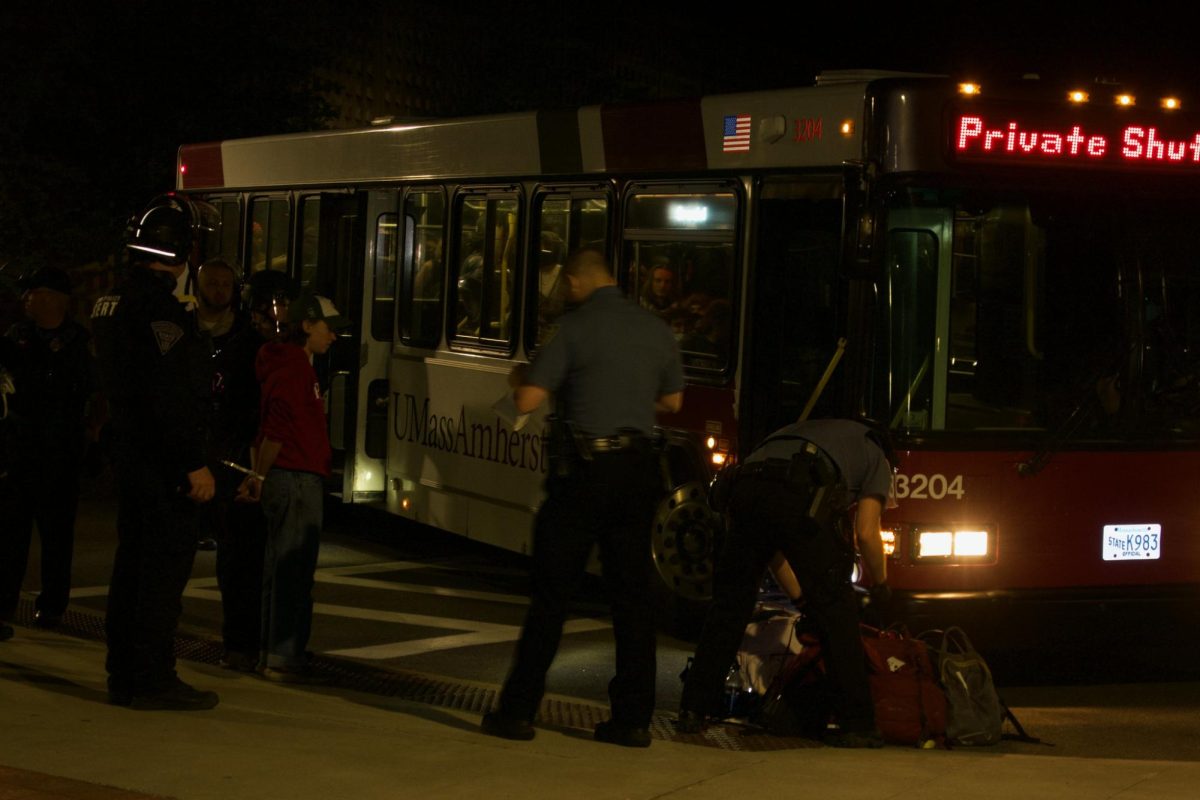I think it’s fair to say that last week a once-in-a-generation event took place. So rarely does something like this occur that you just had to stop for a moment and take it all in. The moment wasn’t unique to us at the University of Massachusetts either; a substantial portion of the United States was experiencing and feeling the exact same indescribable emotion.
Oh, and I’m not talking about the solar eclipse.
My real subject isn’t the freak physical coincidence that we experienced on April 8 – as entertaining as it was. It’s instead the curious spontaneous outbreak we experienced that day.
And no, I don’t mean eye problems, despite what Google search trends seem to suggest. I’m talking about the spontaneous outbreak of community.
Think about it — when was the last time you were part of something where everyone in your immediate vicinity was involved and enthusiastic? In an era where people are glued to their phones and locked into vicious cycles of doom scrolling, genuine and earnest excitement for anything has become a rare commodity. Depression rates are at an all-time high amongst young people, and a kind of jaded cynicism is rampant. We can’t even motivate turnout for some of the most important elections of our lifetimes, because of a pervasive sense of political hopelessness. There is an epidemic of cynicism on our hands, especially with the youth.
And yet, there are no cynics in a solar eclipse.
Almost everyone thinks of a solar eclipse as at least somewhat awe-inspiring, as a reminder of our miniscule, essentially irrelevant position in the universe.
It’s a freak coincidence, an oddity of our little slice of the universe with a moon that is both 400 times smaller than our sun, and 400 times closer to us than our sun that produces some truly mind-blowing visuals.
It’s obvious why something as grand as the eclipse brought us all closer together, if only for a little while. It’s also concerning that we seem unable to form strong communities without the heavenly bodies aligning perfectly. Are the astrology girls right – are we truly dependent on our sun and moon in our efforts to live with and form bonds with each other?
Jokes aside, the communal experience that the eclipse gave us should not be a rarity reserved for only the rarest of cosmic events; it should be something that we orient our society around.
There’s clearly a lack of such a communal feeling these days, and the causes are endless.
A huge cause is the stranglehold that technology has over us. We spend our time buried in our phones and scrolling the internet aimlessly. This behavior discourages the creation of vibrant, healthy communities in real life.
Another, and perhaps even more harmful, way in which technology harms community building is by helping connect us with the world rather than those local to us. Most real-life communities require a level of geographic closeness and demand a degree of compromise on the part of individual members.
But, if you could find people exactly like you and connect with them from the comfort of your bed simply by using your phone, would you even bother with the real life alternative?
We’re experiencing a critical loss of physical communities, and a big part of the problem is our obsession with technology. But this isn’t healthy or sustainable. We need to be able to live with each other and we can’t rely on the motion of planets and stars to find common ground with our neighbors.
An endless variety of solutions have been proposed, with varying degrees of effectiveness. Some think that banning TikTok is the way to go and others think social media in its entirety needs to be taken away from teenagers.
Whatever your specific thoughts are, one thing can no longer be debated; we are at a crisis point, and we need to take action. All that remains to be seen is whether we will.
Manas Pandit can be reached at [email protected]



















